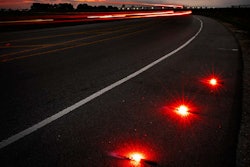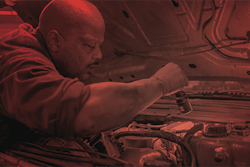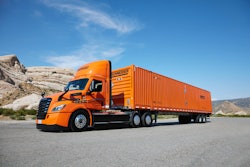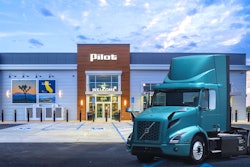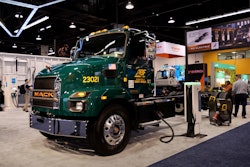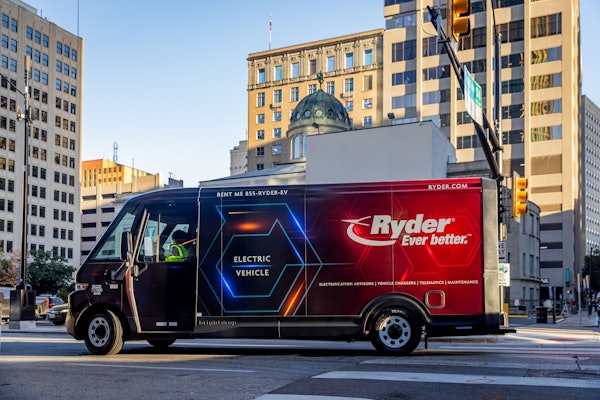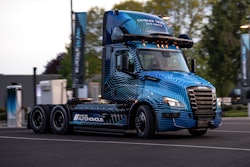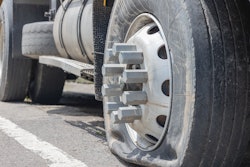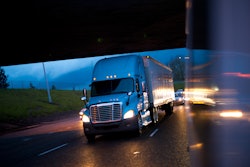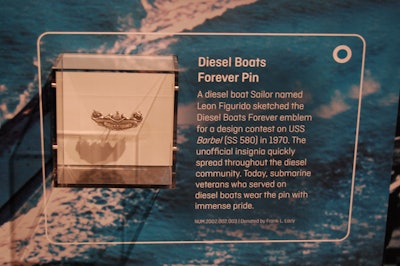
Transitions from diesel to zero-emission power occurred when the U.S. submarine fleet transitioned from diesel to nuclear power.
An artifact of that period is the unofficial DBF medal, which stands for Diesel Boats Forever. I recently toured the United States Naval Undersea Museum in Keyport, Washington, where I started researching this powertrain transition story.
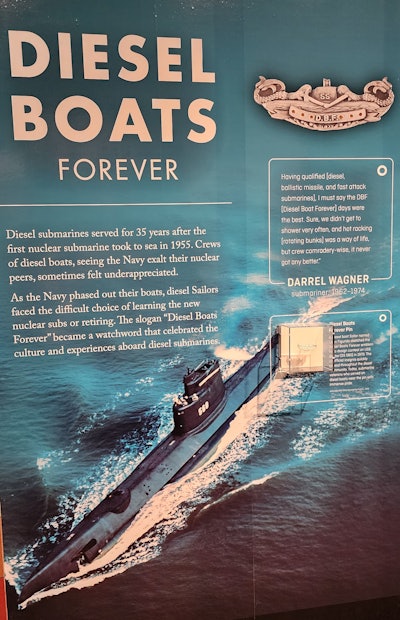
Whether talking trucks or submarines, the heart of a vehicle is the people that make it successful. They have experience and opinions and can influence the pace of technology adoption.
The fact that a transition is mandated tends to rankle some people who have devoted a lifetime to making sure the legacy systems get the job done. Technology visionaries in corner offices need the goodwill and support of all the people that maintain and operate the vehicle for success. Converts are critical in the workforce. Getting both positive and negative first-hand experience with new technology establishes its credibility. That first-hand experience can translate into rapid positive communication that the technology is real, that it works, that it can be cost effective, and that it is not perfect, but is able to improve.
All new technologies go through learning curves; that awkward period where you put your foot on the accelerator and the vehicle doesn’t move. Issues could be as simple as a blown fuse or one microscopic incorrect line of software code out of millions of lines. It happens with diesels and it will happen with zero-emission trucks. Confidence comes from having those issues and getting them quickly resolved.
Part of the allure of traditional diesel trucks is that they have a known history over a century of maturation. Drivers and technicians know that problems occur — if this wasn’t true, we would not need warranty systems, recall systems or Vehicle Maintenance Reporting Standards. Metrics like miles between breakdowns would not be something we tracked. What is confidence building for operators is that no matter what the failure is, there are capable service centers and personnel to fix it.
New technology does not have decades of experience with qualified service support. It’s, well, new. New technology parts supply chains, qualified technicians, service centers, even the typical failure modes are not known, only guessed at. Early adopters, to some extent, buy into new technology with some level of faith that it will all work out.
The Diesel Boats Forever medal started as a somewhat negative reaction to the transition to nuclear powered submarines. The crews were facing mandated change, obsolescence of much of their prior experience, and the fundamental choice to adapt or leave. The fight over the transition went on for many decades at all levels of the Navy, the Defense Department and the government. The benefits of the new technology eventually won over enough converts to make it successful.
The DBF medal, at first a subtle sign of protest, eventually became a badge of honor exemplifying the proud and successful traditions that helped submarine crews transition into the future – a sign that they had paid their dues on diesel boats and a sign that that history is important.
I can see a Diesel Trucks Forever belt buckle coming out of protests against mandated zero-emission vehicles, and eventually becoming a similar badge of honor when the zero-emission future is here; recognizing the proud and successful people that moved the nation’s freight with diesel power for decades.


